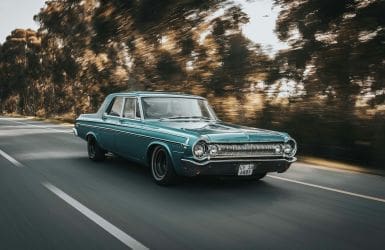Vintage cars - What about insurance and taxes?
You don't just qualify for cheap vintage car insurance. The car must meet several conditions. There are also strict rules for motor vehicle tax exemption for vintage cars. The rules have been tightened.
For insurance and motor vehicle taxes, you need to look closely at the definition of a vintage car according to insurers and the Internal Revenue Service. For tax, it is relatively simple because there is only one definition. For insurers, it's a different story. All insurers may have different definitions. As an owner or buyer of a vintage car, you need to know very well what you are obliged to do and what is wise. We will clarify in this blog what is expected of a vintage car owner.
What is an old-timer according to the tax authorities?
Today, fewer cars fall into the advantageous old-timer rate. There are also different requirements for motor vehicle tax exemption. The main tightening is that a car must now be at least 40 years old for motor vehicle tax exemption. Do you have a truck or a bus? Then an additional requirement is that the vehicle is not used commercially. Is your vintage car younger than 40 years old? Then you owe motor vehicle tax depending on the fuel of the car.
Does the vintage car (up to 40 years old) run on diesel, LPG or gasoline?
We can be brief about vintage cars under 40 years old that run on diesel or LPG. The regular motor vehicle tax rate is due. A transitional arrangement may apply to gasoline-powered cars. These are vintage cars that entered the road between 1975 and 1988. Owners owe motor vehicle tax, but at a reduced rate. They must be cars that run on gasoline only. So without an LPG tank. The transitional arrangement also applies to motorcycles, buses and trucks that are not used commercially. The motor vehicle tax is a quarter of the regular rate. The transitional arrangement expires in 2028.
The transitional arrangement does have one drawback
The transitional arrangement does impose a restriction on you. The car may not be used on public roads during the months of December, January and February. During this period you can store the oldtimer. But beware! The insurance obligation remains.
Not on the road, but insured
For the vintage car that falls under the transitional regime, it seems logical that the car is also not insured in the months of December, January and February. After all, the car does not enter the public roads. But the insurance obligation remains. If the car is not insured, you can be fined for driving it uninsured. Even if you don't actually drive it. The only way to get out of the insurance obligation is to suspend the license plate.
Have you suspended the license plate and should the car insurance for the vintage car also be suspended? Per the date of suspension of the license plate, the car insurance for the vintage car can also be suspended or terminated.
Also read
Cost increase oldtimer ownership 1200%?
When can you insure a car as a vintage car?
Insurance companies 'expropriate' oldtimers
Europeesche requires garage or storage with oldtimer insurance
Based on 3699 reviews
We can be reached via chat, WhatsApp, phone or email
Questions? Contact us if you want to know more.
We are here today until 6 p.m.





